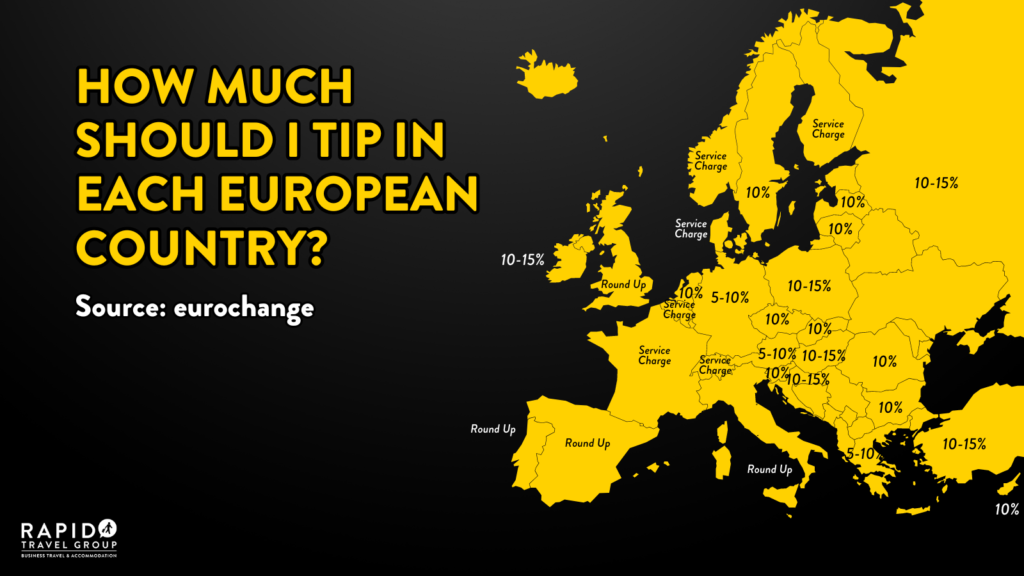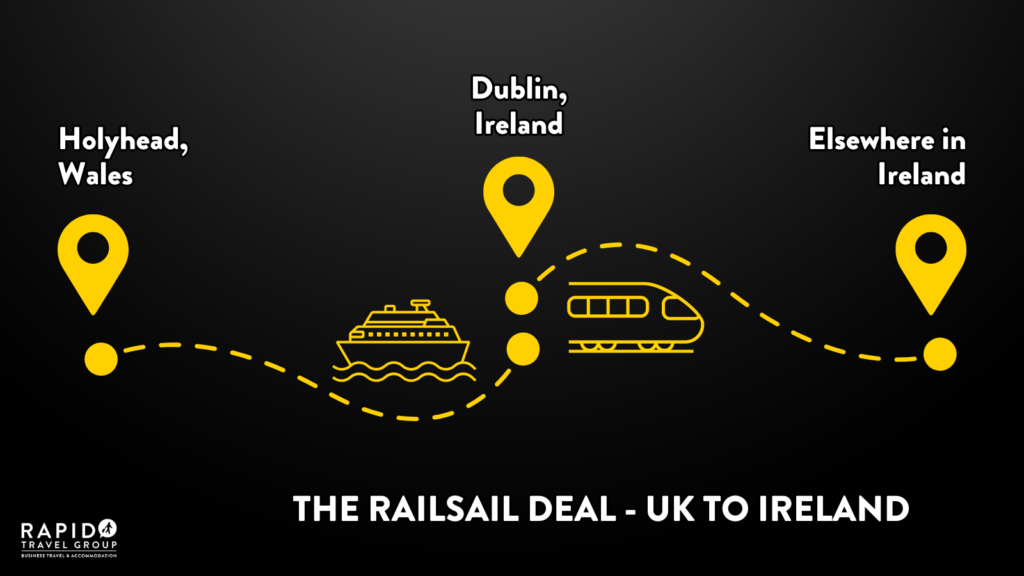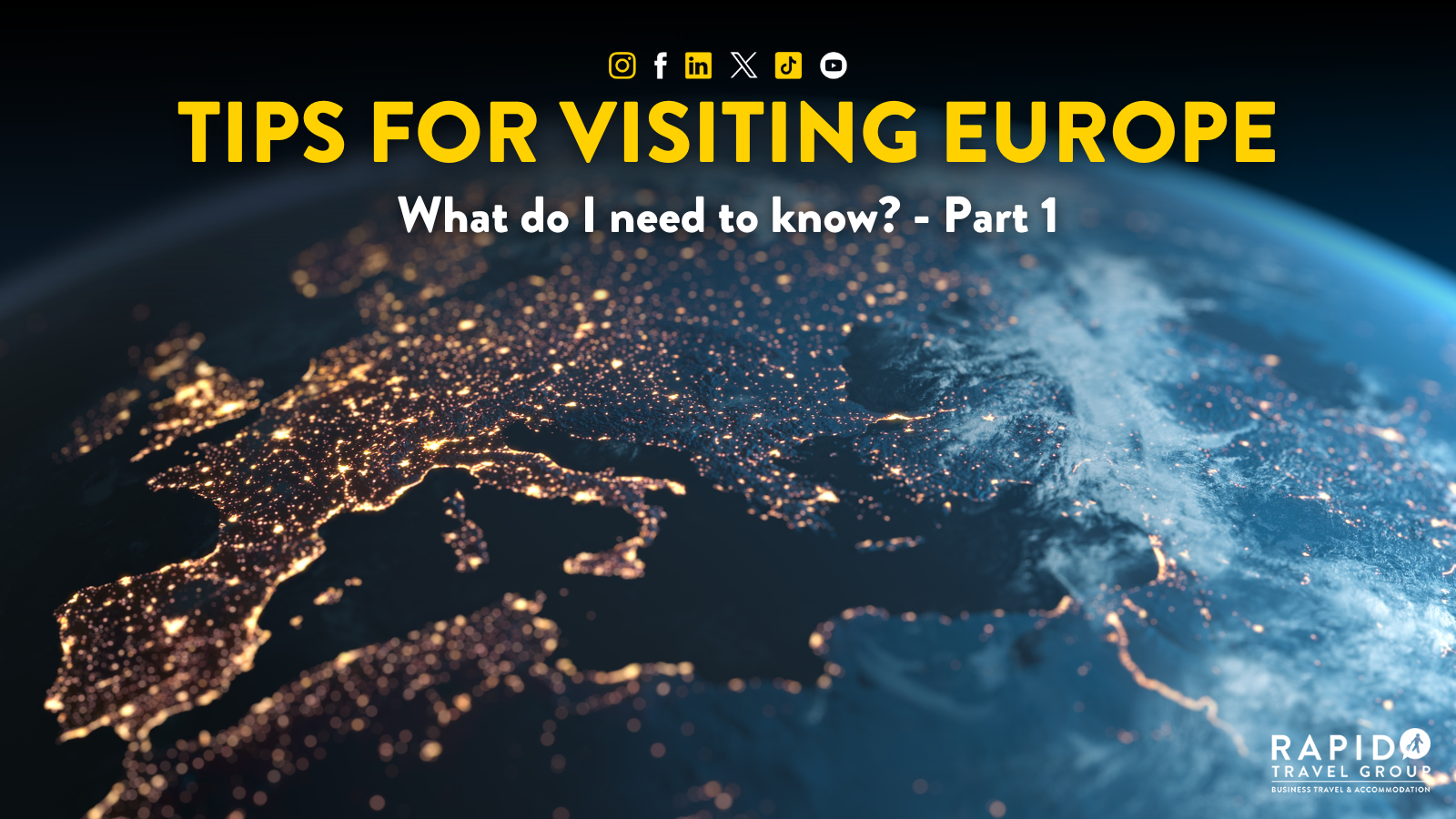Planning on visiting Europe soon? Here’s some tips for visiting the major cities you’re most likely to travel to on a business trip:
London, UK
- You don’t need an Oyster card, but it might be helpful if you work in London often or are buying a RailCard.
- The tube isn’t 24 hours. It’s usually 5am to midnight, with some night trains on Friday & Saturday on more popular routes.
- Your destination might be only 1 tube stop away – easily walkable. Download the TfL Go app – maps, routes, and plan your journey.
- Staying in the East of the city (Shoreditch, Hackney, etc.) tends to be cheaper than other neighbourhoods.
- The no.11 bus goes past some of London’s most significant areas.
Berlin, Germany
- Download the BVG app for public transport. The S-Bahn (Stadtschnellbahn, Rapid Railway), U-Bahn (Untergrundbahn, Underground), and buses.
- Germany still has a strong cash culture and many places won’t take card.
- It’s common to tip 5-10% at cafes & restaurants. (It’s best to check this when visiting other countries in Europe).
- Try to avoid Oktoberfest. It will be very busy.
- The trains in Germany are better than in the UK, they are a good way to get around Germany if you need to leave Berlin.

Zurich, Switzerland
- This is the most expensive city for Taxis. Source: Deutsche Bank Research. You can get a Swiss Travel Pass or Half-Fare card (1 month) for public transport.
- Don’t put your feet on seats (even park benches), it’s very rude here (more than usually) and someone is likely to say something to you.
- The Swiss don’t really queue.
- Greetings are with 3 cheek kisses.
- Most places are closed on a Sunday. Restaurants & bars may be open, but not shops.
Stockholm, Sweden
- Avoid the central metro station (T-Centralen) at 4pm and 8am, this is rush hour and the ‘stress tunnel’ becomes very busy. Getting an SL Card may be helpful for public transport.
- Weather is unpredictable, take something for every temperature. In winter you’ll need sturdy, waterproof boots.
- Sweden is moving towards a cashless society. Take some cash just in case but it probably won’t be necessary. The currency is Swedish Krona. (Never just assume it’ll be Euro with visiting other countries in Europe).
- You can get to the airport by bus, which is much cheaper than other methods.
Dublin, Ireland
- Sunday being God’s Day is important in Ireland. No buying alcohol & shops closed in the morning.
- Unless you’re staying in Dublin, rent a car.
- Beware of the hidden Toll on the M50. No toll booths – just cameras. You’ll have until 8pm the following day to pay at www.eflow.ie
- Some ferry companies offer a ‘RailSail’ deal with a ferry from Holyhead (Wales) to Dublin, then a train to elsewhere in Ireland.

Prague, Czech Republic
- Public transport here is good, and low-cost.
- Avoid mini markets & restaurants in the old town, you’ll overpay. Shop at larger stores instead. Check the ‘Denni Menu’ at restaurants for deals, often found on some paper outside the restaurant.
- Try to only use ATMs on the sides of banks. The ones in shops have extra charges & may have extra conversion charges.
Budapest, Hungary
- Tipping 10-15% is expected in restaurants. Don’t just leave it on the table, inform your waiter.
- You’ll get a better exchange rate at smaller booths than in a bank or the airport. Euros are accepted but the official currency is still Forints.
- Don’t clink beer glasses. It’s a social faux pas originating when the Hungary revolution was overthrown in 1848.
Was the city you were looking for not here? You can ready Part 2 here. We’ll be publishing part 3 very soon!

